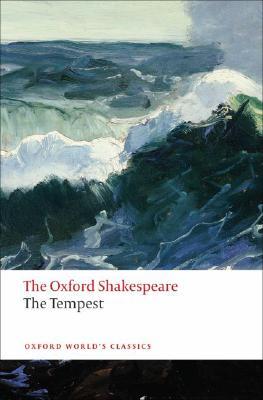Review: The Tempest by William Shakespeare

I was expecting an epic, weighty story. Dark omens, bloody deaths, and madness. And the title! The Tempest. Excellent. I imagined a tumultuous drama unfolding.
Well, I was completely caught off guard by this whimsical happily-ever-after story. I guess I had enjoyed Shakespeare’s dark tragedies so much, I forgot he also wrote romantic comedies.
‘The Tempest’ is set on an enchanted island, with magic spells, spirits, and musical interludes.
It’s light and fluffy, until you decide to over-analyse it.
Here is my quick analysis on the topics of colonialism and gender.
Colonialism
When ‘The Tempest’ was written (1610s), the English colonisation of America had been underway for about 4 years. Popular news included expeditions and clashes with indigenous people.
The character of Caliban was inspired by the idea of a strange, foreign savage.
He is an easy villain to hate. Shakespeare actively chose to make Caliban an unsympathetic character by giving him a monstrous form and including the detail that he had tried to sexually assault Miranda.
Making foreign people out to be threatening, and unhuman is a common strategy for ‘othering’.
You might remember Trump’s comments on Mexican people: “These aren’t people. These are animals.” And “They’re rapists.”
Also consider how physical deformity or ugliness is used to represent an evil nature. Imagine a crowd jeering as Caliban comes onstage in a grotesque costume.
Interestingly, Shakespeare never explicitly described Caliban’s race. (His mother was from Algiers and had blue eyes. Caliban himself is ‘freckled’). However, black actors are often cast in this role. It certainly says a lot about society who gets chosen for the role of the enslaved, villainous ‘other’.
Perhaps Shakespeare had no intention to make his play about race and colonisation. But we can consider how works of art and our interpretation of them reflect our social values.
Gender
On gender, ‘The Tempest’ is pretty much what you would expect for something written 400 years ago.
A woman doing magic: Evil. A man doing magic: Respected leader.
Miranda: Pure, naive goodness.
Miranda’s boyfriend Ferdinand: “I’ve been with a lot of girls, but you’re not like other girls. By the way, are you a virgin?”
One thing that did surprise me: Miranda was the first to suggest marriage to Ferdinand.
Final thoughts
Many writers refer to ‘The Tempest’ as an influence on their work. I knew I had to read it to finally see what elements appear in modern novels.
You can find a summary of what inspired Shakespeare’s ‘The Tempest’ here.
I didn’t enjoy it as much as I had hoped. This is often the way with classics that have a big reputation preceding them.
3 out of 5 nymph songs.